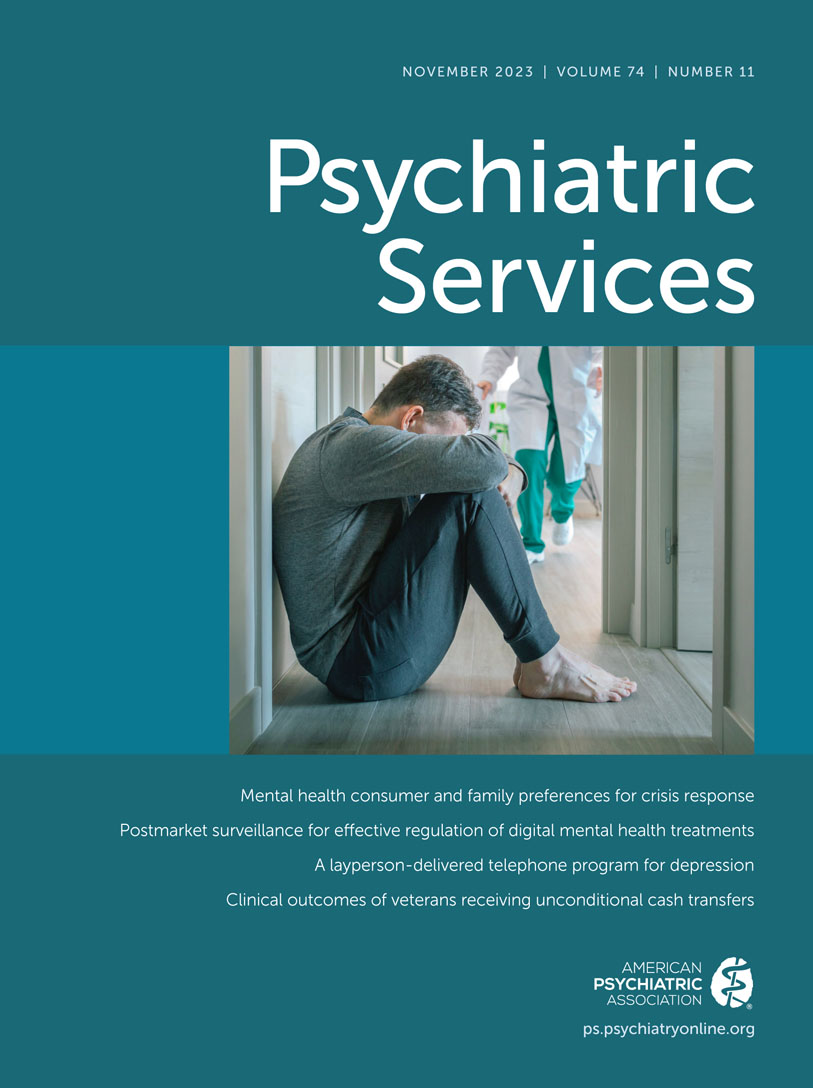Unconditional Cash Transfers and Association With Clinical Outcomes Among U.S. Veterans With Psychosis or Recent Homelessness
Abstract
Objective:
Three rounds of stimulus checks were distributed to middle- and low-income U.S. adults during the COVID-19 pandemic. This 15-month longitudinal study examined rates of receipt of these stimulus checks, planned expenses, and associations with clinical outcomes among three veteran groups.
Methods:
In total, 158 veterans, consisting of 59 with a psychotic disorder, 49 recently homeless veterans, and a comparison group of 50 veterans without a history of psychosis or homelessness, were assessed five times between May 2020 and July 2021. Bivariate analyses were used to compare receipt of stimulus checks and planned expenses among the groups, and multivariable analyses examined how receipt of checks was related to mental health and substance use over time.
Results:
No group difference was found in receipt of stimulus checks, and 74%–84% of veterans reported receipt of more than one check. Most participants reported plans to use their stimulus checks to pay for bills, groceries, credit card debt, and rent or mortgage or to save the money. Over time, participants who received a greater number of stimulus checks reported significantly decreased symptoms of depression (B=−0.48) and anxiety (B=−0.84) and improved social functioning (B=0.24). For the recently homeless group, a greater number of stimulus checks received was associated with decreases in days of alcohol intoxication and drug use, but the reverse was found for the psychosis group.
Conclusions:
Multiple short-term unconditional government cash transfers may improve mental and social functioning among vulnerable populations during major crises, a finding that contributes to the research literature and has policy implications for pandemic and emergency preparedness.
Access content
To read the fulltext, please use one of the options below to sign in or purchase access.- Personal login
- Institutional Login
- Sign in via OpenAthens
- Register for access
-
Please login/register if you wish to pair your device and check access availability.
Not a subscriber?
PsychiatryOnline subscription options offer access to the DSM-5 library, books, journals, CME, and patient resources. This all-in-one virtual library provides psychiatrists and mental health professionals with key resources for diagnosis, treatment, research, and professional development.
Need more help? PsychiatryOnline Customer Service may be reached by emailing [email protected] or by calling 800-368-5777 (in the U.S.) or 703-907-7322 (outside the U.S.).



